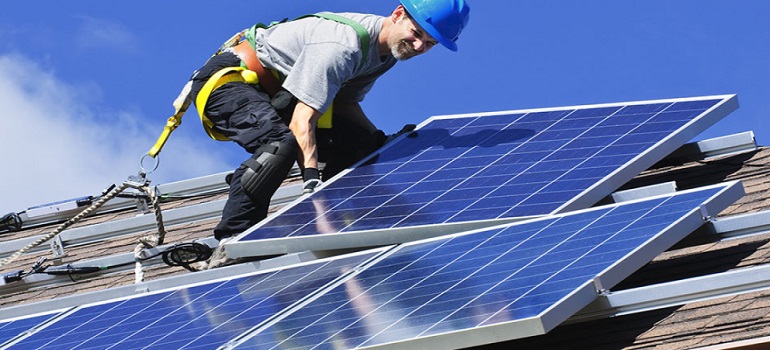Falling Solar Costs and Policy Momentum Propel Growth, Despite Regulatory Hurdles
India’s rooftop solar market is on a dynamic growth trajectory, projecting a potential record addition of 4 gigawatts (GW) in capacity during fiscal year 2024. According to a collaborative study by the Institute for Energy Economics and Financial Analysis (IEEFA) and JMK Research & Analytics, recent capacity enhancement between April and July 2023 reached nearly 2 GW, indicating sustained progress fueled in part by decreasing solar module expenses.
Vibhuti Garg, Director, South Asia, IEEFA, emphasizes that solar and its various facets, including utility-scale, rooftop, and open access solar, must play pivotal roles for India to achieve its ambitious target of 500 GW renewable energy by 2030. The report cites successful examples in countries like Germany and Australia, showcasing the transformative potential of rooftop solar with proper policy and regulatory frameworks.
Despite this growth, the rooftop solar sector faces notable regulatory complexities. Challenges stemming from uncertain regulations and limited support from local electricity distribution companies (DISCOMs) have led significant developers to explore alternate sectors or exit the rooftop solar industry altogether, notes Jyoti Gulia, Founder of JMK Research.
Certain regions like Gujarat, Andhra Pradesh, Telangana, and Delhi Union Territory have established conducive environments for commercial and industrial (C&I) customers adopting rooftop solar projects. However, other states need to enhance their efforts in promoting rooftop solar. Shifts away from net metering to less advantageous arrangements have prompted C&I consumers to explore different renewable options, such as open access, in states like Uttar Pradesh and Tamil Nadu.
The report advocates several recommendations to boost the rooftop solar market. These include introducing separate renewable purchase obligations for rooftop solar, permitting behind-the-meter rooftop systems to help DISCOMs manage their load schedules, and establishing uniform regulatory provisions akin to the Green Open Access Rules.
Additionally, the micro, small, and medium enterprises (MSME) segment has emerged as a promising area for rooftop solar growth. Improved financing options for MSMEs and the potential approval of a credit guarantee mechanism by the World Bank could further drive the adoption of rooftop solar projects within this sector.
The report highlights that integrating battery energy storage systems, virtual net metering, and peer-to-peer trading could significantly enhance the rooftop solar market. These innovations offer economic and operational advantages, benefiting both consumers and DISCOMs while contributing to India’s renewable energy goals.


